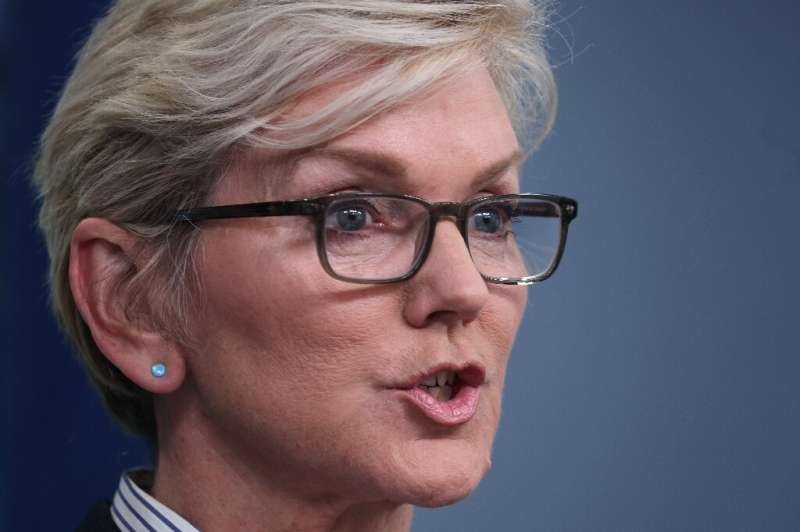US Secretary of Energy Jennifer Granholm said Biden administration programs had made the United States "irresistible" to investors and foreign companies focused on renewable energy.
Pointing to key Biden administration policies to mitigate climate change, Energy Secretary Jennifer Granholm promised Wednesday that the United States would lead global energy transition.
"The Biden-Harris administration has made the United States the most attractive investment landscape for new energy and decarbonization technologies," Granholm said in an address at CERAWeek, a major energy conference, in Houston.
"The United States will be the global leader of this transition," she added.
Biden has signed into law a major 2021 infrastructure plan, followed by the Inflation Reduction Act (IRA) last year, which also included significant incentives for carbon-free energy.
Between the two packages, Washington has established nearly $500 billion in subsidies, loans and tax incentives for renewable energy, climate-friendly transport and technology development
Such programs have made the United States "irresistible" to investors and foreign companies focused on these industries, she said.
But Granholm acknowledged that the IRA has unsettled officials in the European Union, who fear the aggressive US program could shift investment away from the bloc.
"Well, let's just say that the businesses love it. Big government, not so much," Granholm said.
"But as we keep saying, ... you should incentivize the production of clean energy in your country as well," Granholm said, adding that she welcomed "a little friendly competition" to green the economy.
"We will continue to work with our allies," she said. "We don't want to stoke trade wars or anything like that."
At last year's conference, held soon after Russia's invasion of Ukraine, Granholm exhorted the energy industry to boost production as oil prices soared.
On Wednesday, Granholm said she was "grateful" for increases in energy production, referring to forecasts that the United States will hit record crude production in 2023 and 2024.
"That obviously has helped our allies and it's helped at home making sure that we don't see the volatility at the at the pump," Granholm said.
But she said there is still plenty of risk, adding that both the United States and Europe were a "bit lucky" with a milder winter that did not require too much energy for heating.
© 2023 AFP
























